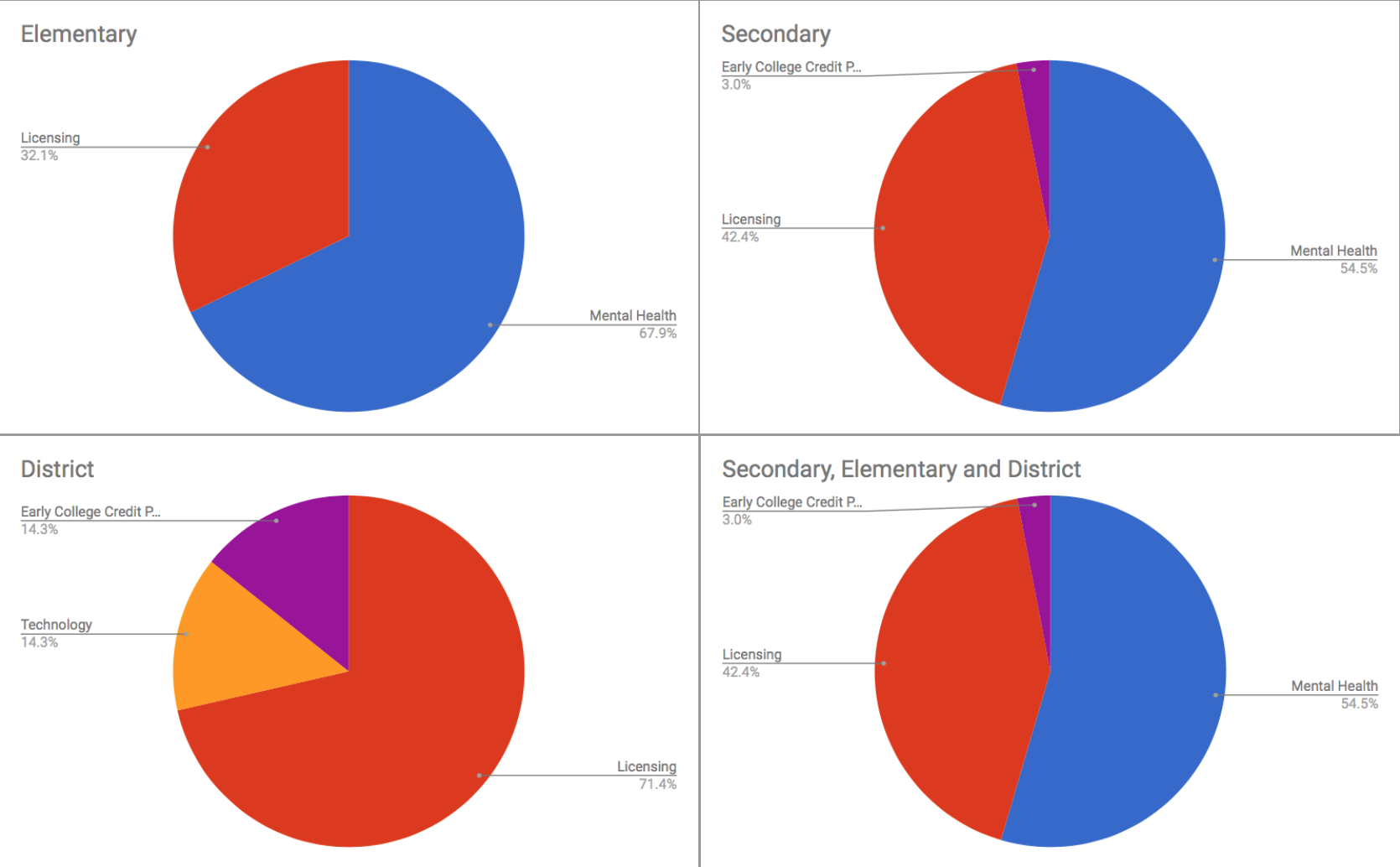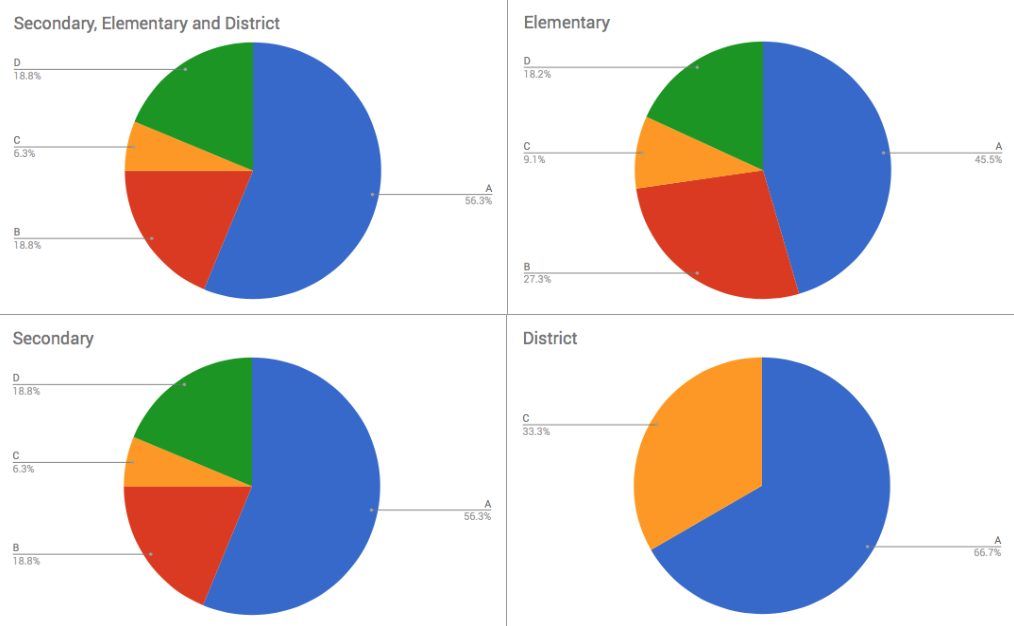October 11th Edition
#TakeAKnee: Guidance for Principals on Free Speech at Athletic and Other School Events
by Malina Piontek, Attorney, LLC
Last year, Colin Kaepernick took a knee instead of standing during the National Anthem to protest social injustice and police brutality. Other professional athletes followed suit and began taking a knee during the Anthem. The President tweeted on how players should stand during the anthem and the protests took off. Coaches and even owners have joined in. Now, cameras are focused on athletes during the playing of the National Anthem, giving viewers an immediate look at who’s protesting and who’s not.
Read more.
When You Say Coaching, We Say...
by Debra Ahrens, SPDG Project Director
Walk through the doors of any Wisconsin school today, and you will see educators working long hours to improve outcomes for the students they serve. When presented with the task of incorporating new initiatives and practices, even after significant professional learning and training, those same teachers often feel overwhelmed. Moving from training to successful implementation is unlikely if teacher support stops with learning about a new practice.
Read more.
Harnessing Cognitive Dissonance: Leading Deep Change to Benefit Every Student
By Joe Schroeder, PhD Associate Executive Director, AWSA
Cognitive dissonance is defined as the mental discomfort experienced by a person who simultaneously holds two or more contradictory beliefs, ideals, or values. As leaders in education, we care about cognitive dissonance because this discomfort is essential to any deep transformation or change. And I contend there is no more daunting or worthwhile challenge in education than leading transformation that will promote equitable conditions for all students. I also contend (and kindly offer) that the current design of most schools, particularly in how we group students, contradicts such student-centered aims. Therefore, if we are serious about deep change, we need to clearly illuminate such approaches of our daily work and structures that are in contradiction to our stated beliefs and ideals. This is never easy to do, but it is where the growth is. And one of the key reasons that transformational leaders are able to excel in the first place is their ability to “get comfortable about living in discomfort” -- and helping others they lead and serve do the same. This article will share one component of last month’s launch of AWSA’s Leading for Equity Academy (LEA) in Eau Claire and Madison, which prompted cognitive dissonance in many participants so that they can better promote equity and excellence for all back home.
Read more.
Licensing Changes
by David DeGuire, DPI
As you likely know, there have been many changes to licensing rules over the past year. If I were still a middle school principal, here are the things I would most want to share with my staff, plus things that can better address staffing challenges.
Read more.

September 27th Poll Results
The k-12 2017-19 education budget has been moved forward and in this weeks Update Bulletin, you'll see a few pieces specifically addressed that may impact principals the most. In this weeks poll, please identify which area will positively impact your current work, focus or priorities the most.

October 25th Edition
Summary of 2017-19 Budget Provisions Directly Impacting School Leaders
This summary includes budget provisions directly impacting school leaders, including important new support for addressing student mental health and sweeping changes to licensure.
Educator Impact: Conversations that Build Schools of Equity and Excellence
by Tammy Gibbons, AWSA Director of Professional Development & Information
I get in my car, start driving down the road and think, “Why did/didn’t I say that? I want to redo that conversation!” Believe me, it has happened on more than one occasion to many of us and it is the reason we’ve committed so much time to studying and practicing conversations that move practice, cause reflection, and have a positive impact on people and outcomes.
Heading into the types of conversations we often consider as “crucial”, requires thoughtful preparation. Albert Einstein is quoted as saying, “If I had an hour to solve a problem, and my life depended on the solution, I would spend the first 55 minutes determining the proper questions to ask, for if I knew the proper questions, I could solve that problem in less than 5 minutes.” Having a conversation that leads to a change in behavior or practice or influence a mindset means that a strong leader needs to consider a few things before having it.
Read more.
Strategies to Avoid Disciplinary Removals for Students with IEPs
by Jessica Nichols, Education Consultant, Wisconsin DPI, Daniel Parker, Assistant Director of Special Education Division for Learning Support, Wisconsin DPI and Elizabeth Cook, School Psychology Consultant, Wisconsin DPI
The primary vision of the Wisconsin Department of Public Instruction is to support schools in ensuring all students are college and career ready. For many students, this vision will be easily attainable; they come to school with internal and external factors that align to our educational standards without much difficulty. Other students, however, struggle with achieving this vision. This is not for lack of wanting to be successful in school, but because of other factors that become barriers to the pathway to success. Students with IEPs fall within a vulnerable population of students who are more likely to find themselves not achieving their full potential. This is particularly true for students who exhibit behavioral challenges. As educators, we can support these students through appropriate supports, careful planning, and maintaining high expectations. Through this work we can ensure that all students have equitable access to the mission and vision of our educational institutions.
Read more.
Webinar Licensing Changes
AWSA would like to invite you to join our webinar on the significant changes to educator licensure included in the State Budget. The webinar will take place at 9 AM on Thursday, October 26.
We hope that you will be able to join us live for the webinar but if you are not available at this time or need to step away at some point, please know that we will be recording and posting the webinar online within 24 hours of the event.
October 11th Poll Results
In this week's article, Joe Schroeder talks about harnessing cognitive dissonance to help lead school-wide change in equity. With this concept in mind, which of the following best describes the current state of your school?
A) I'm not sure a majority of my staff even know what cognitive dissonance is and/or why it is important.
B) We are experiencing discomfort in acknowledging the difference between the goals we have for all students learning and our actual results.
C) We are begining to experience cognitive dissonance through a growing realization that the ways we group students is at odds with the equity goals that we roundly claim to believe and aspire to achieve.
D) We are beginning to harness the discomfort of cognitive dissonance to make substantial changes in our school that will serve the learning of all students
better.
E) None of the above

|



